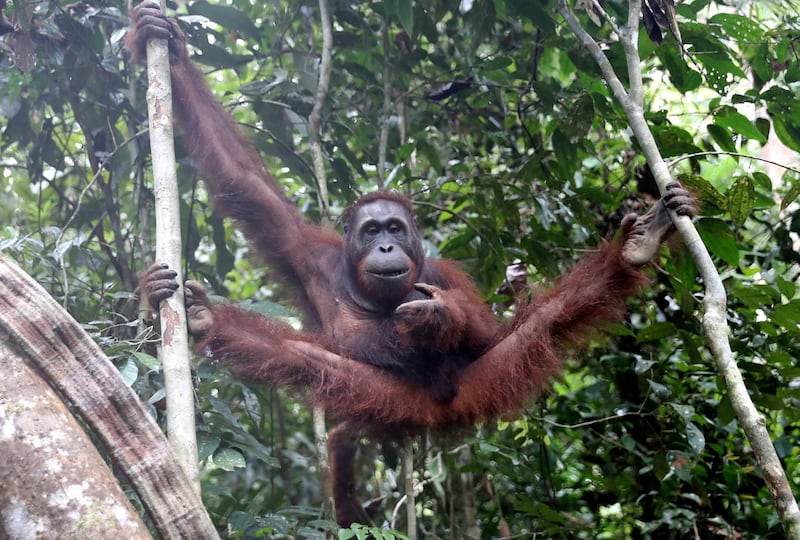Hollywood has been taken to task over the “unethical” use of apes and monkeys in movies.
A UK conservation expert claims film depictions of the animals, often “smiling” or dressed in human clothes, are misleading and potentially harmful.
Brooke Aldrich, from the charity Neotropical Primate Conservation, analysed two decades of English-speaking film trailers from 1993 to 2013 to investigate the roles played by primate “actors”.
Her findings, published in the journal Anthrozoos, show that more than half the time apes and monkeys were shown among people, frequently performing “human” actions.
In many cases chimps and other primates were seen to be “smiling”, which indicates fear or submission.

Ms Aldrich said: “Far too often, well-meaning, animal-loving people fail to recognise the suffering of wild primates in captivity.
“Given how often people see images of ‘smiling’ chimps or capuchin monkeys, apparently happy to be wearing a pirate suit or brushing their teeth, it’s not surprising.
“As long as monkeys, apes and other primates continue to be depicted in this way, such misunderstandings are likely to continue.”
Examples of major Hollywood films featuring primate actors include The Hangover Part II, The Wolf of Wall Street, and Babe: Pig in the City.
A previous study found that 35% of people surveyed mistakenly thought chimpanzees were not endangered due to their frequent appearances in film and television, said Ms Aldrich.
The orangutan was the only primate species whose use in films was declining, she added.
This could be due to their long-standing “endangered” status in the US, making them more difficult for film-makers to source, she believes.








